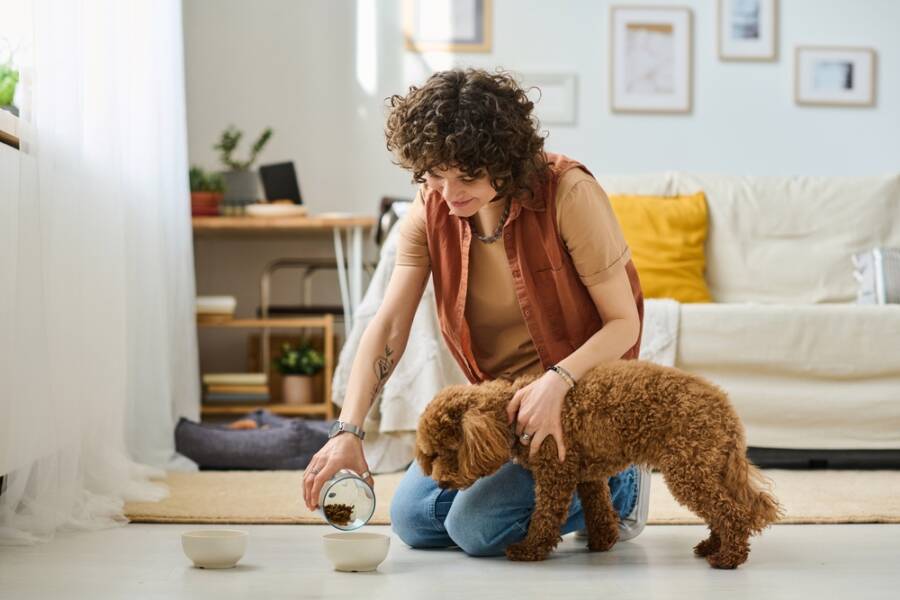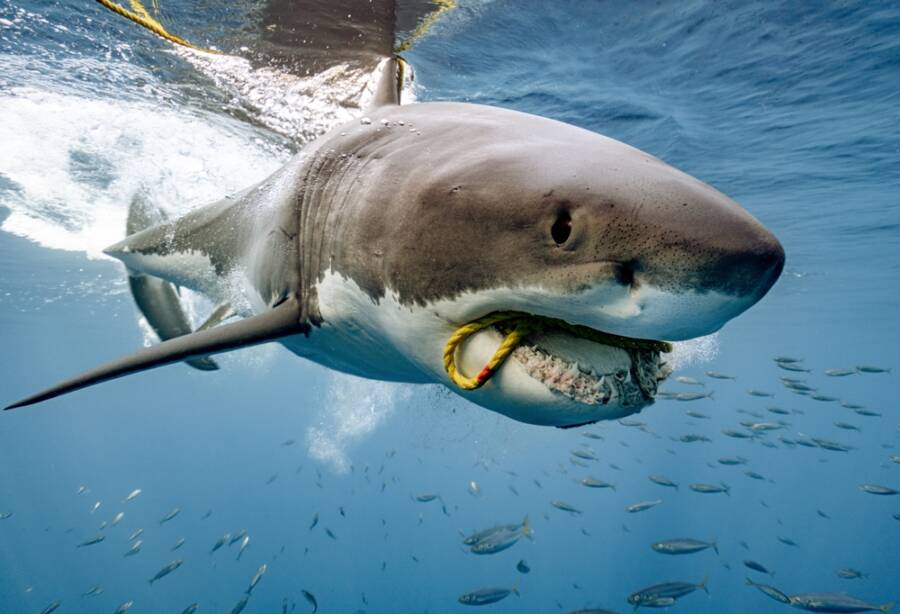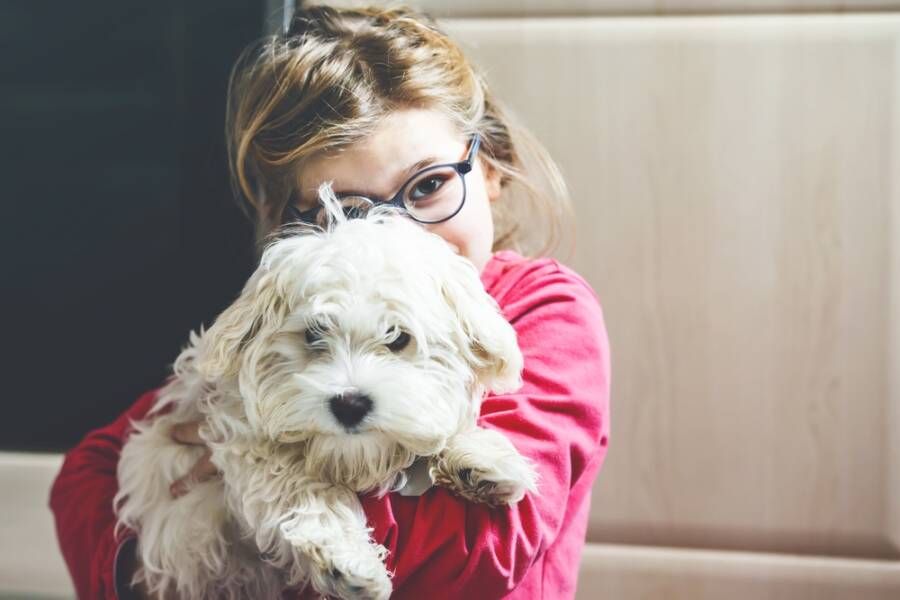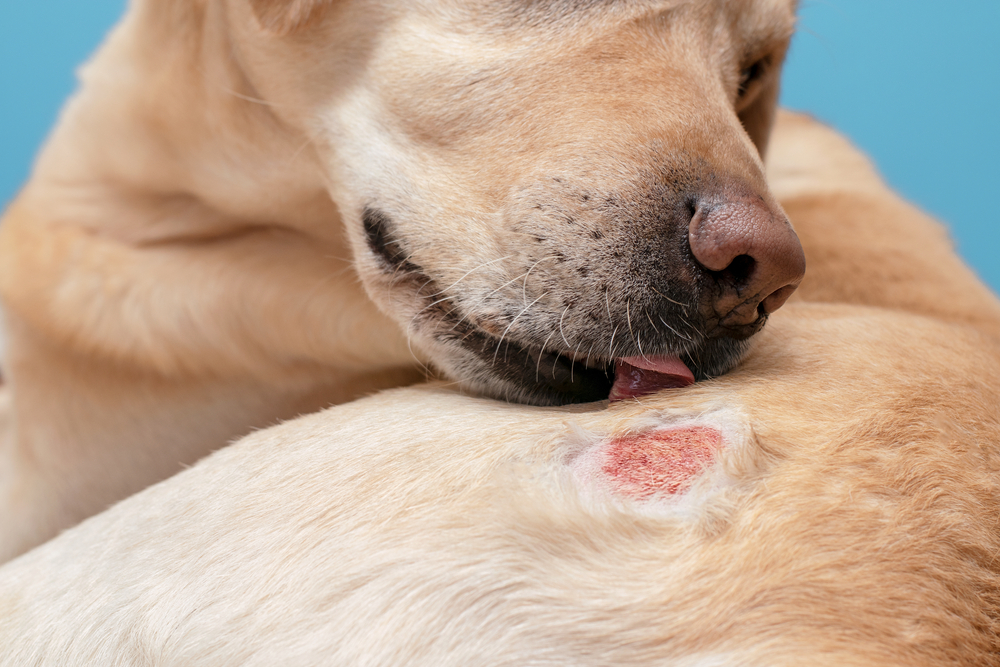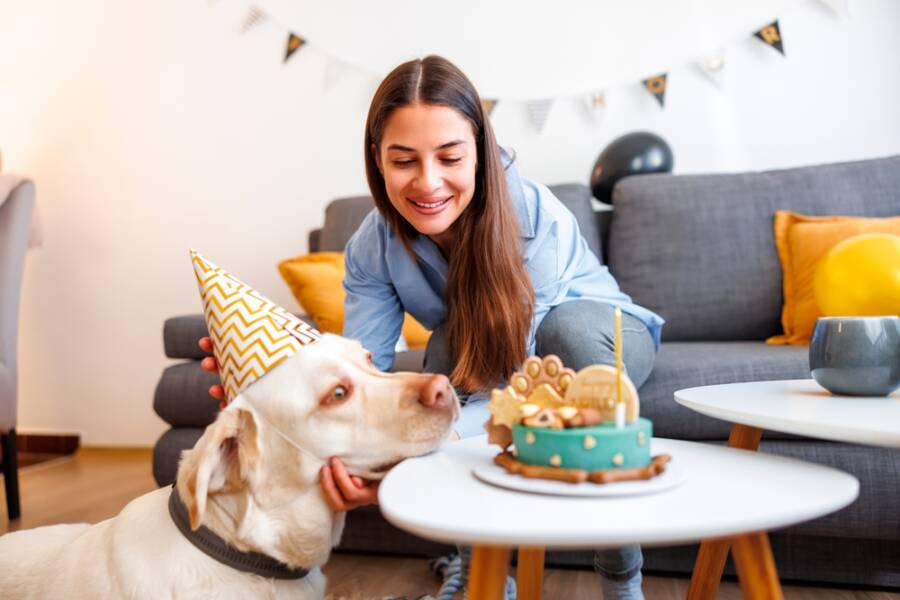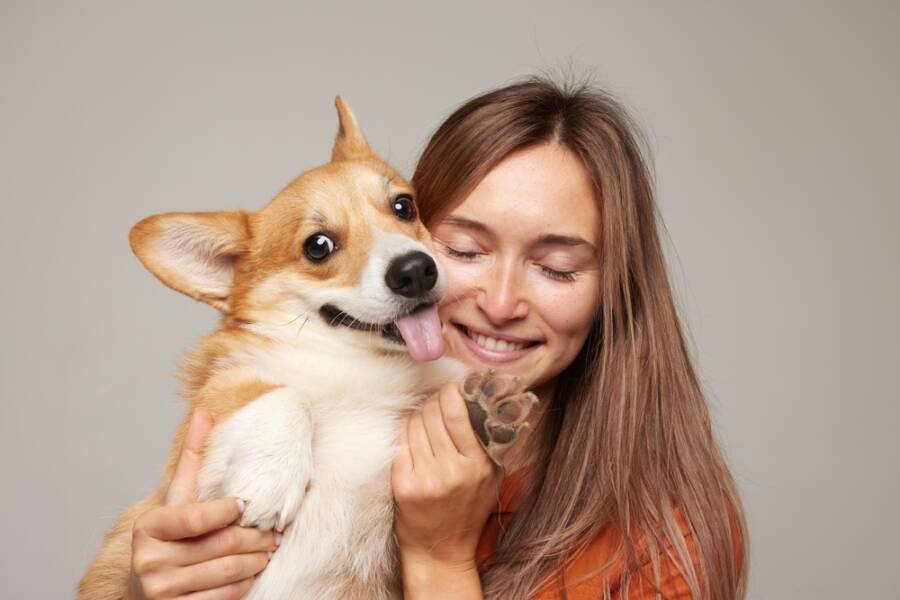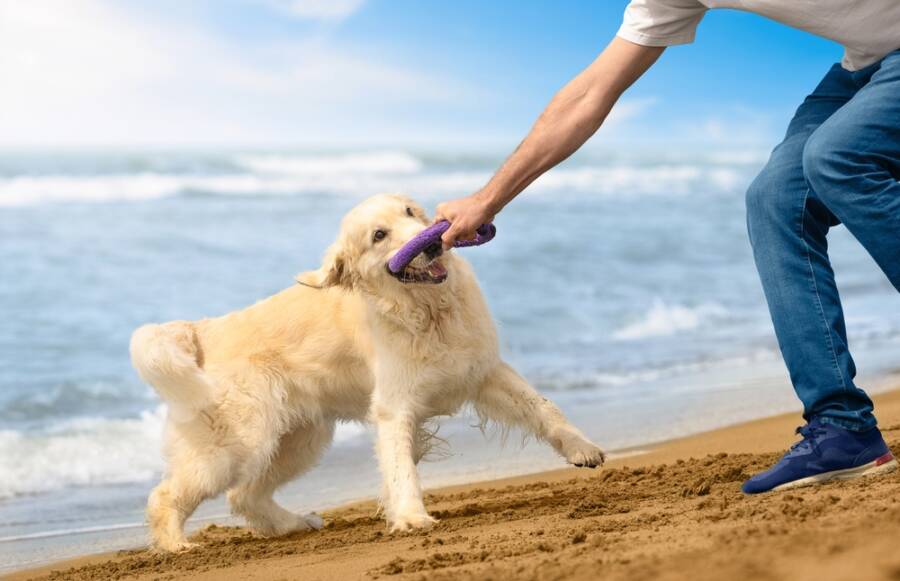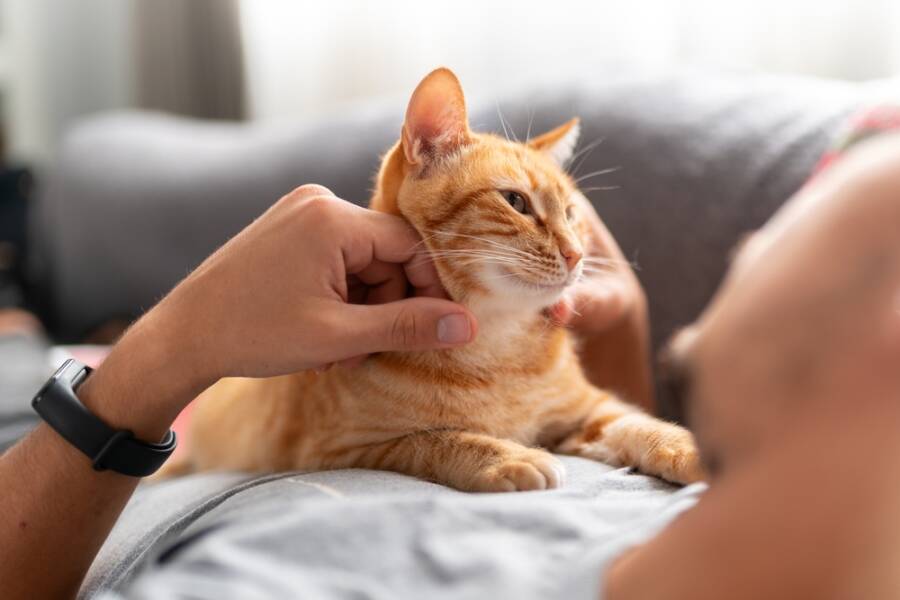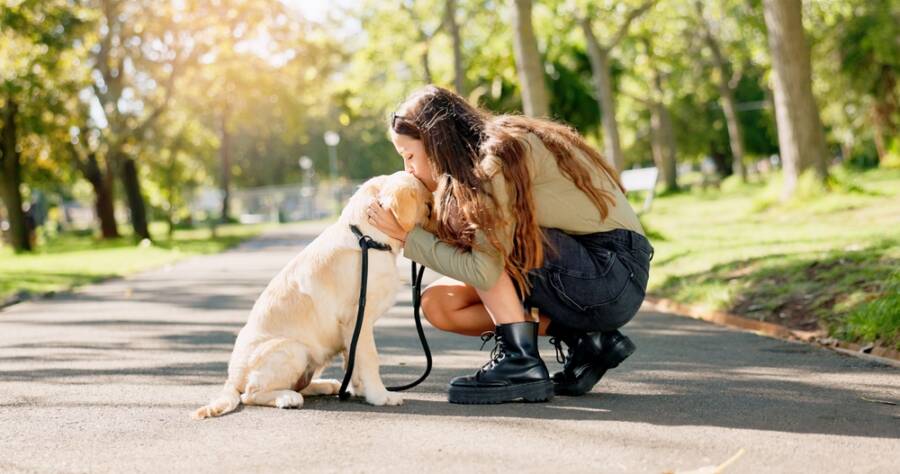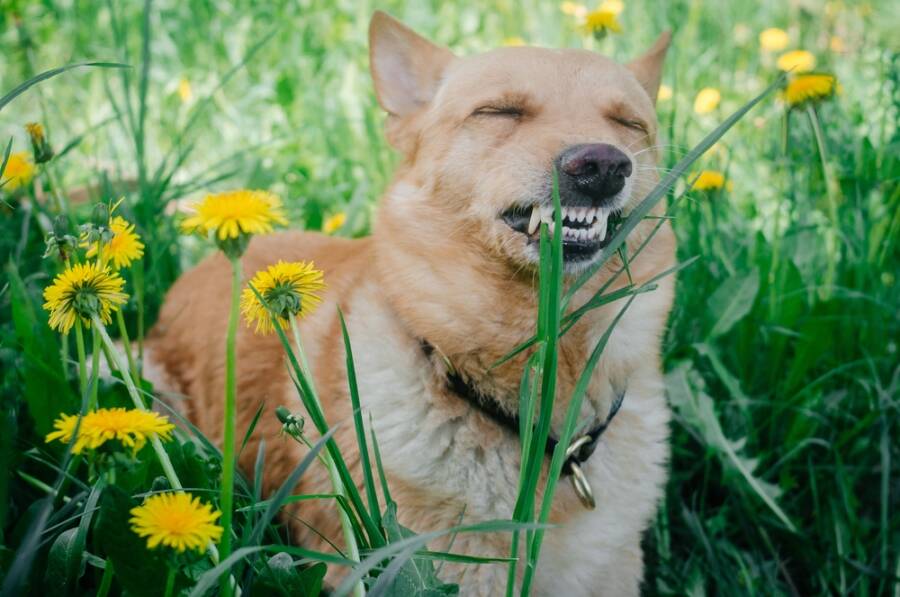Have you seen these signs of dog dementia in your pup?
When it comes to dog dementia, not a lot of owners are prepared to deal with it. After all, it is easy to imagine that people will forget where they put their keys, and you will be able to sense something is wrong, but our beloved pups do not do that.
Instead, they have other signs that they are going through it, that they have the so-called “senior moments,” and that they can easily be touched by dog dementia.
There are some people who believe that you can see what can cause a pup to develop CCD (canine cognitive dysfunction), but since preventing it is pretty hard, we can only keep an eye out for the early signs that it is coming.
That way, we can know if our dogs are struggling, and we can do our best to help them and provide them relief. Whether we can slow down the development of dog dementia or just be there to help and understand our senior dogs, knowing the signs of dog dementia is crucial for all dog owners.
Keep reading to discover some of these signs, which are crucial in identifying that a dog is struggling with dog dementia, and be there to help them.
Remember that having one or some of these symptoms is not enough to just label your dog with this disease, but rather that you should speak with a specialist if you see any of these symptoms happen frequently!
Do you have any experience with having a pup with dog dementia? Share your story with other animal lovers in the comments below!
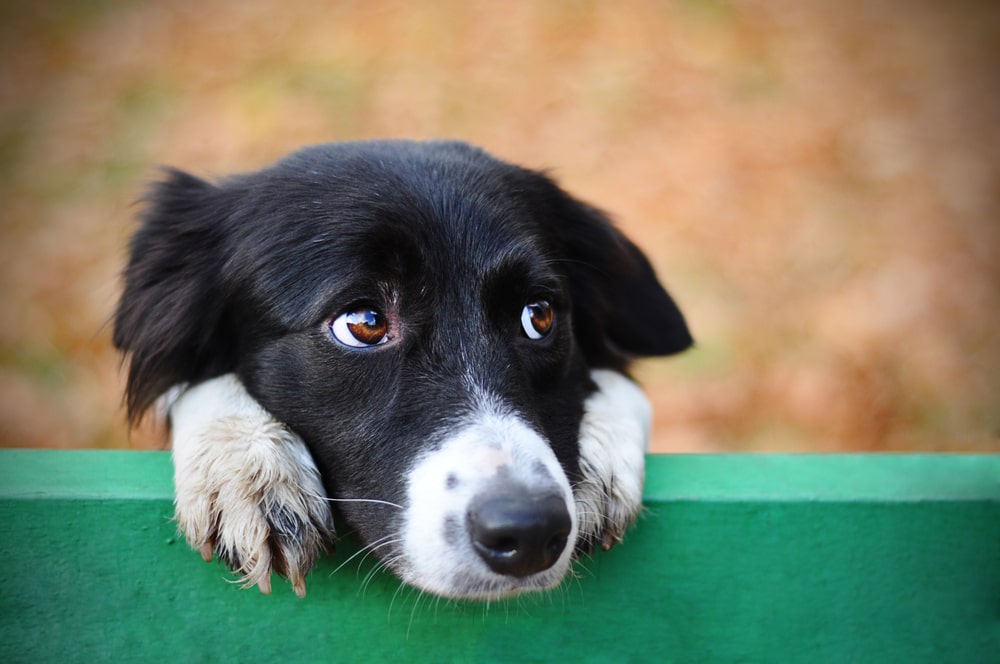
You observe changes in behavior with other pets, guests, and family.
CCD (canine cognitive dysfunction) is also known to impair the dog’s ability to interact with other animals and with humans, including their own humans.
An easy way to tell is to see how they act around other dogs. If your pup has always been the sociable, friendly type, and now they are suddenly snappy and irritable with other dogs, then you should start to think about what could have set them off.
If something happened that led them to growl at another dog, it is understandable, but if they are doing it for no apparent reason, you should be on the fence about it.
It could happen because there is something wrong, be it that your dog is in pain and they cannot tell you in another way, so they are irritable because of the pain.
Some dogs that end up developing dog dementia end up acting extremely differently compared to when they were healthy; they do not react the same to their favorite foods or toys, they start to ignore their families, and they may not even want to go on a walk anymore when they were at the door even before you finished the word “walk.”.
No matter what changes in behavior you see, make sure you talk to your vet about them!
Your pup is disorientated.
This is one of the early signs that your pup is developing dog dementia, especially if it happens in an environment that he is generally used to and familiar with. The best way through which you can easily figure out if this is actually your dog being disoriented and not just because it just happened to get confused at the moment is if it happens in places you know they cannot get confused.
Places like the backyard, your apartment building, and the local dog park you keep going to are surefire ways to tell they are starting to get disoriented. Be it that they are looking around like they have never been there or if they take the wrong turn or go through the wrong door, it is easy to tell.
What’s more, disorientation can also cause dogs to not be aware of the space around them. They may end up not knowing how to get out of common places in the home; you may find them not being able to locate their dog bed or even just staring at walls for no reason.
Dogs are supposed to have a good sense of time and space, so if something starts to seem off, it is a clear sign that your dog is not doing well, and it could be dog dementia. Despite this, it may also be the case that there is something else that is causing these issues, so a trip to the vet is definitely in order!
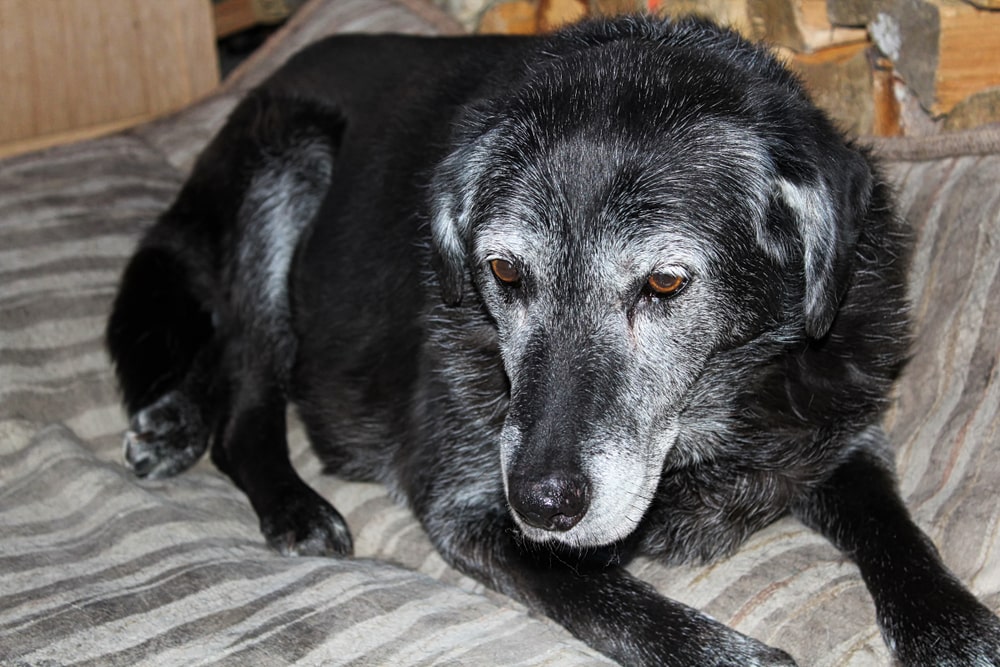
Your dog ends up soiling the home.
One of the most common signs of dog dementia is if your dog ends up urinating or defecating in the home. If your pup is house-trained (as most of them are), losing control of their functions or even not being able to remember that they should not pee or poop inside the home is a sign of their cognitive decline.
Doctors have also mentioned that this could be because they are losing their ability to hold off until they have to go or that they can no longer control when they eliminate and when they do not. Another thing that could happen is that they have forgotten how to let you know that they need to go out: maybe you have trained them to let you know and they simply cannot remember it.
It is not a happy moment when you have to deal with something like this, but you should never take it out on the dog. They may not have been aware of what they were doing or they could not control themselves, so you should see what the root of the issue is.
Be it a bladder infection, diabetes, a kidney infection, or a cognitive problem, you should ask your vet to test all the possibilities. Yet, if your dog is right next to the door and they defecate next to it, it is not defiance; they simply forgot they could not do it inside.
A good way to try to keep your dog’s brain alive and working is to invest in it. This means that you should get them some toys that will enrich their environment and provide entertainment and rewards! This is one of the toys we have gotten for our pups, and they love it!
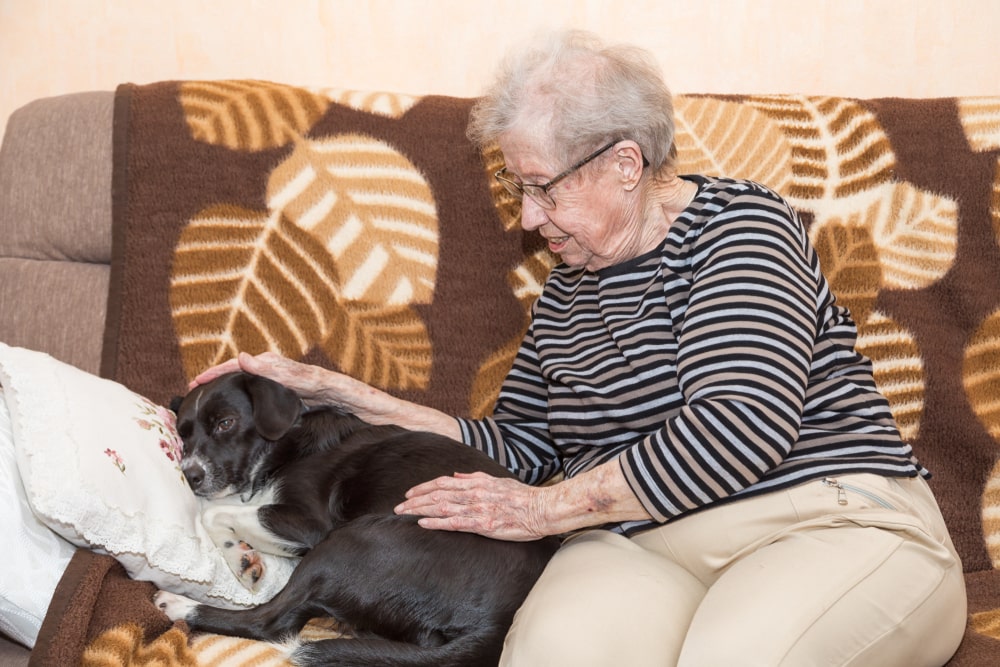
Their activity levels are decreased suddenly.
A lot of pups that end up developing canine cognitive dysfunction also suffer from a quite surprising decrease in their activity levels. You may be used to seeing your dog excited to meet people or generally up to explore new places and meet new people; they may have been the type that was excited when they heard new sounds or smelled something new.
Yet, once dog dementia starts to settle in, these reactions end up being less and less frequent. They stop being as active; they may even stop playing fetch with their favorite toy or coming over to greet you when you are back from the store.
Dogs with dementia may also no longer have the drive to be as active as they once were, slowly becoming less focused on what they are doing or suddenly disinterested, while also displaying different types of responses to different stimuli.
Deceased signs of activity are a sign that something is wrong with your pup, no matter if we are talking about dog dementia or not. So if you see changes in behavior, make sure you note them down and talk to your vet if they keep persisting.
Sometimes you may see certain signs that your dog is not okay, but they do not point towards dementia! If you see certain behavior changes but are not sure what they are, make sure you are knowledgeable about different diseases that could affect your dog. Read all about the most common signs your dog has depression here!


